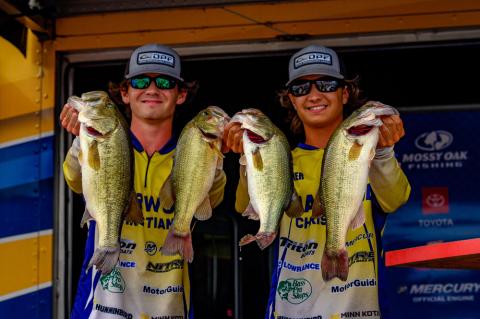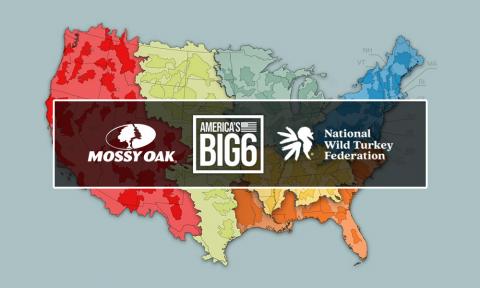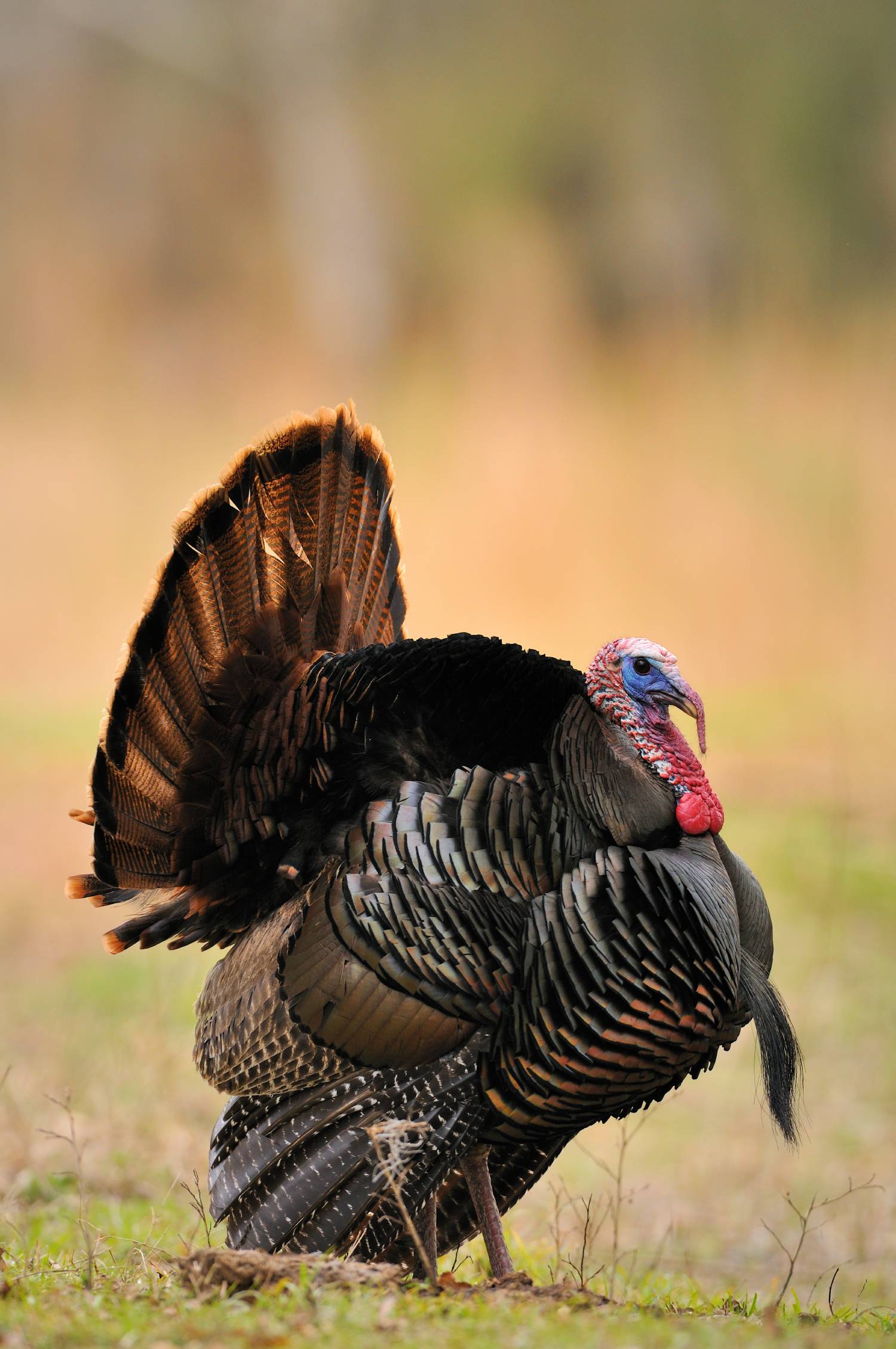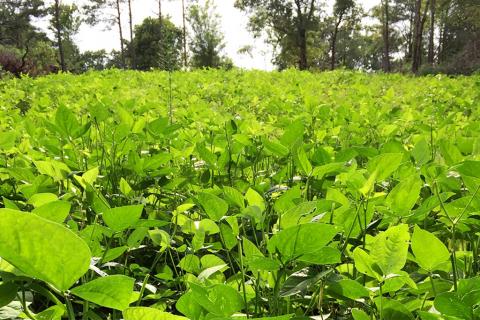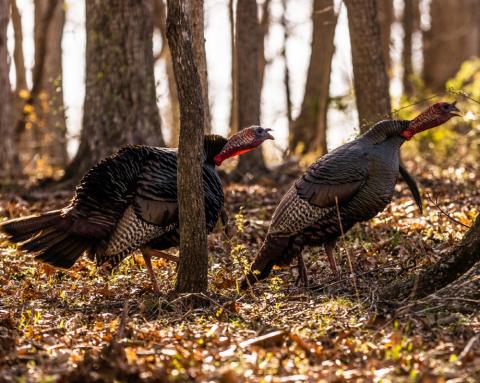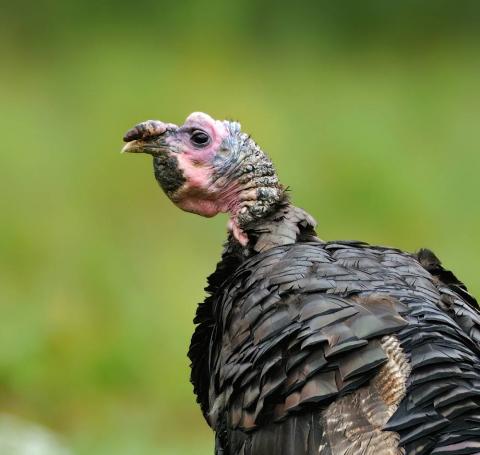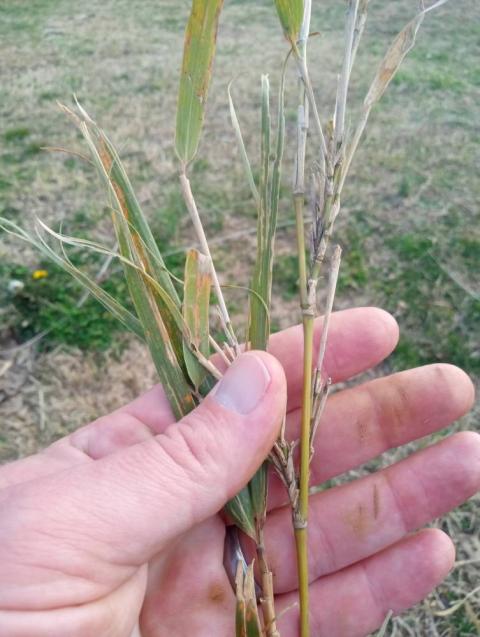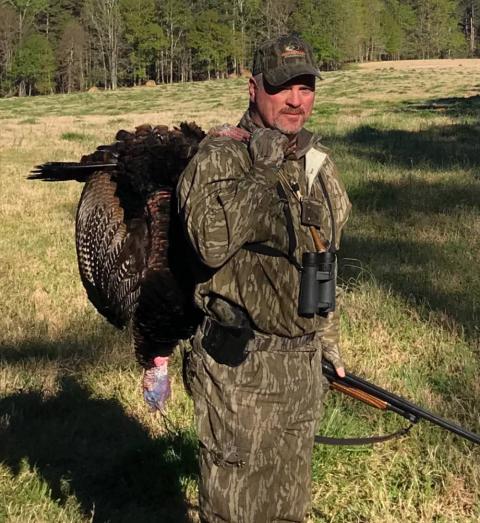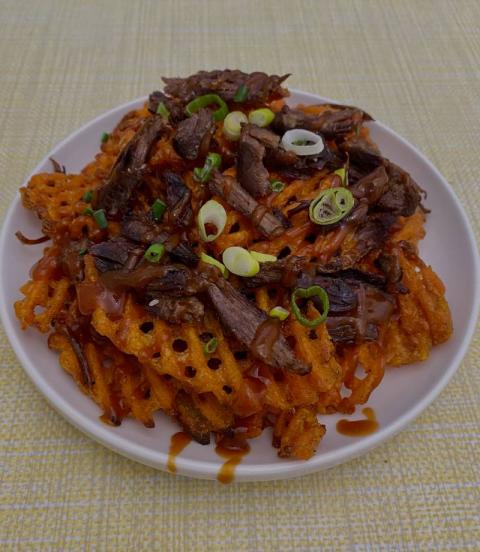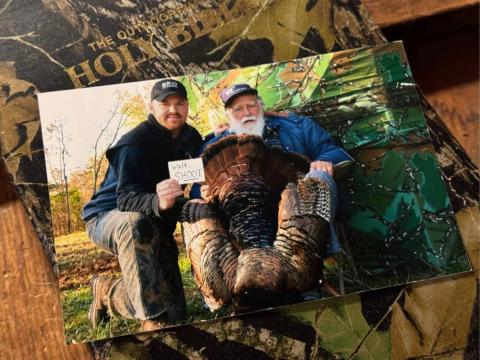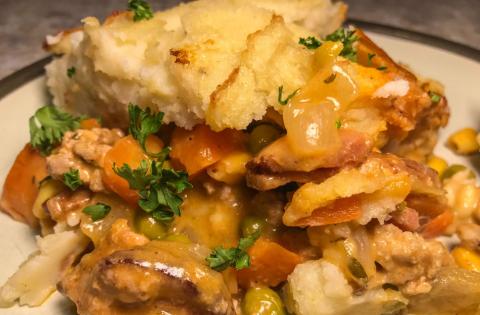provided by John E. Phillips
At the 2020 Mossy Oak Fishing Bassmaster High School Championship, Tucker Smith won his third National Championship with two different partners from Briarwood High School in Birmingham Alabama. Each of these three championships had from 200-300, two-man high-school teams participating in it. In 2020, Smith fished with Hayden Marbut, and the team brought in 47 pounds and 5 ounces of bass. The tournament was held on Kentucky Lake.
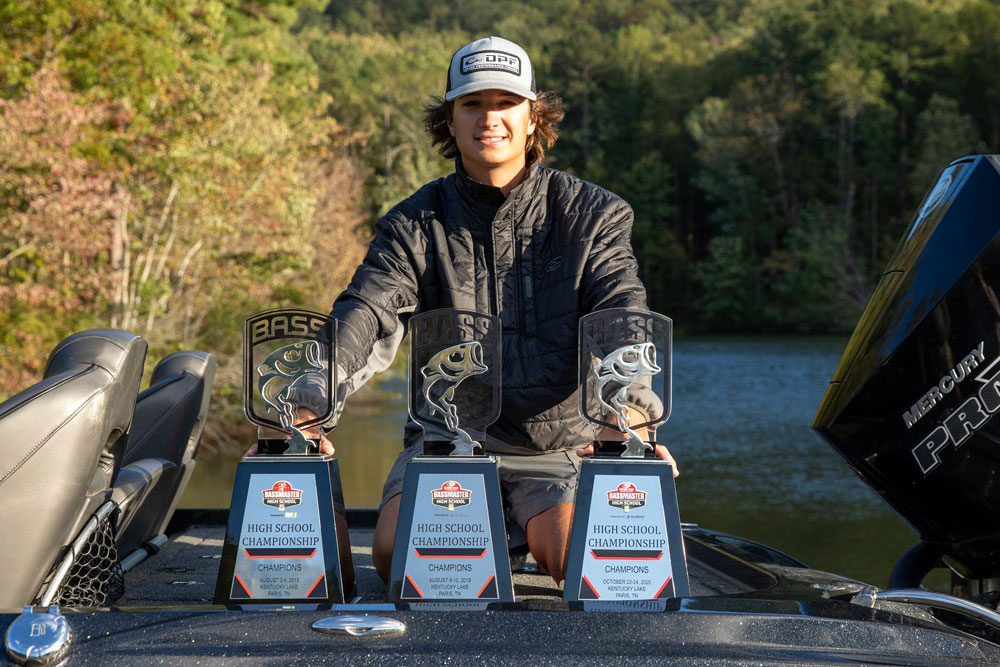
What advice would you give to high-school tournament fishermen to help them be as successful as you’ve been in winning three National Championships and having a group of sponsors who have helped you along the way?
I think the hardest thing for me to overcome, and for any high-school athlete to overcome, is learning to discipline myself to do what I must to become as successful as I want to be. You have to keep on fishing even when you’re tired, you’re hungry, you’re wet, and the weather’s windy or cold. You have to make yourself, in those conditions, continue to fish as hard as you can and to find and catch as many bass as possible. You’ve got to push yourself to locate bass and learn how to catch them when your mind’s telling you to give up. I know it’s an old cliché that the more time you spend on the water, the better bass fisherman you’ll become. I’ve found that not only is that old cliché correct, but also that spending a lot of time on the water bass fishing is the most essential thing you can do to become the best bass fisherman you can be. To do that, you’ll have to give up many things that you prefer to do - like being on the couch on Saturday watching football games and kicking around with your friends during hunting season. I believe that the word I’m looking for is that you have to be passionate about your fishing. Other than school, fishing has to be the most important thing and take up the most time of anything in your life.
To be the best bass angler possible, you need to remember when the wind’s blowing really hard and the weather’s very cold, a time when you’ve had these same type of conditions, what lures you’ve used to catch bass then and what kind of places you’ve cast that lure to and caught those bass. The only way you can build that database in your mind is to have spent a lot of time on the water in all types of weather and water conditions.
Something else I’ve learned is that when the winds are blowing, the shad will be blown onto a point, and the bass will follow those shad. Then if I fish that type of point with a certain kind of lure, I should be able to catch a bass. You need to have those kinds of experiences, so when you’re in a tournament, and those conditions hit, you know what you should do to catch fish.
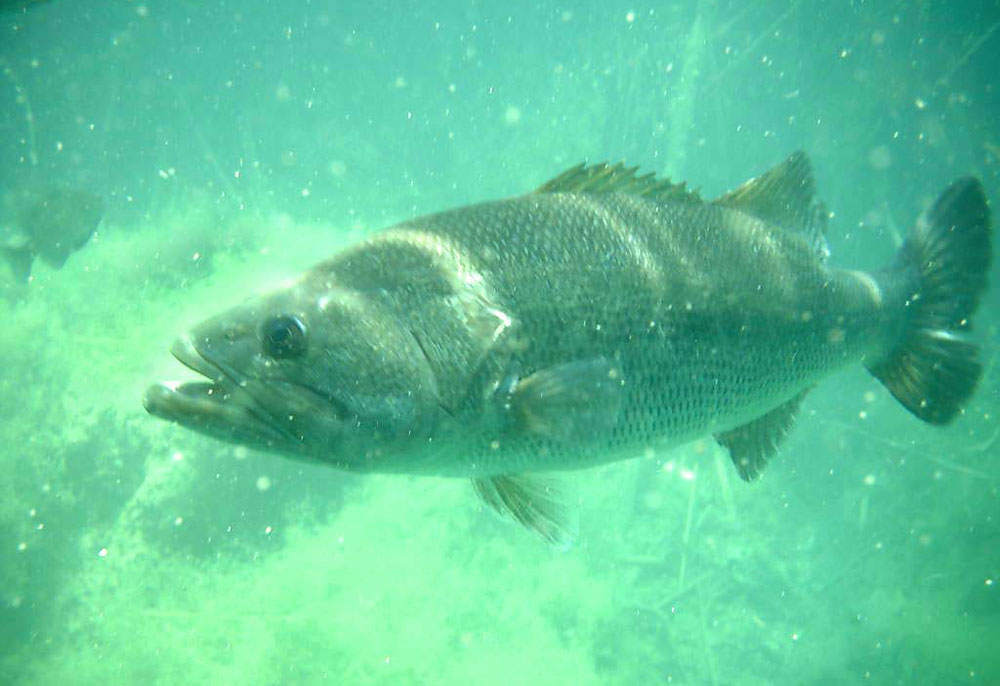
What do you do when you don’t know what to do to catch bass?
I go with my gut feeling. This overused term is rarely explained; however, I’ve learned that when I don’t know what to do, my brain automatically will pull up a suggestion based on all the data I’ve put in my brain about fishing different weather and water conditions. That recommendation won’t always be right. But I’ve had those moments where I’ve listened to my gut or my subconscious and have found and caught bass - regardless of the situation.
Sometimes in a tournament, you may have had a productive practice period, feel like you have the bass on lockdown and think you should win the tournament. However, on the first day of the tournament, the weather, the water and/or the wind conditions may have changed, and none of the bass are where you thought they’d be. That’s when you need to listen to your subconscious and let it tell you where you need to fish and what type of lures you should use. If you don’t have a gut feeling, just go out and fish like you will on a practice day. You have nothing to lose when the bass aren’t where you thought they’d be. I’ve had plenty of tournaments where the bass I’ve found in practice don’t bite when the tournament starts.
In this year’s Mossy Oak Fishing Bassmasters High School Championship that was exactly what happened. During practice, we had our bass nailed down. However, an hour into the first tournament day, we knew that everything we’d learned and practiced wasn’t working. So, we started fishing down the bank and looking for fish in shallow water. That’s where we found that honey hole. We had four spots that we had planned to fish on the first day of the tournament, and we were almost positive we could catch a keeper bass at all of those spots. On the first spot, we caught one bass that wasn’t a keeper and caught no bass at the second place, the third spot and the fourth site. We left the fourth spot and started fishing down the bank. We hadn’t gone 200 yards before we found our honey hole and got blessed.
And that’s what I love about tournament fishing. You never know when you’ll find a megawad (huge school of big bass) and be able to catch them. These things are some of what I’ve learned through my high-school tournament bass-fishing career. I hope they’ll help you, if you’re a high school angler or a weekend fisherman who wants to become a better bass fisherman. I plan to take my high-school bass-fishing education and apply those lessons to my collegiate bass-fishing career and later hopefully to a professional career.














